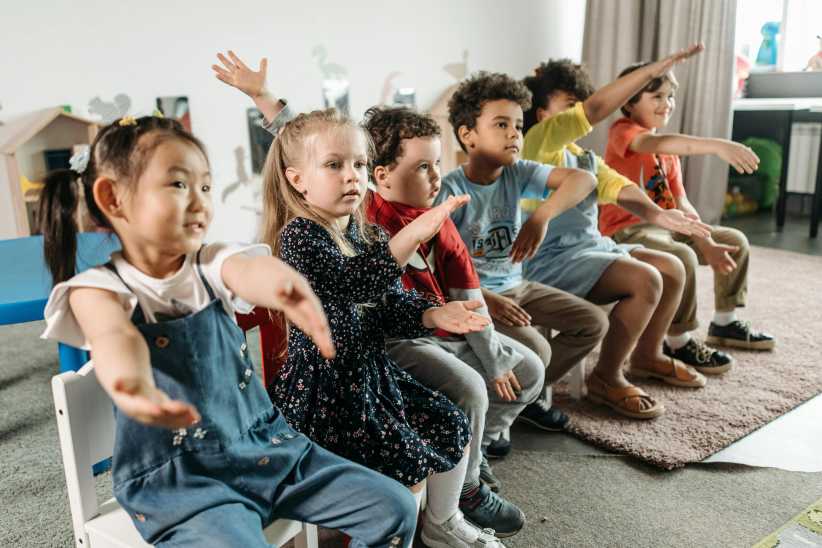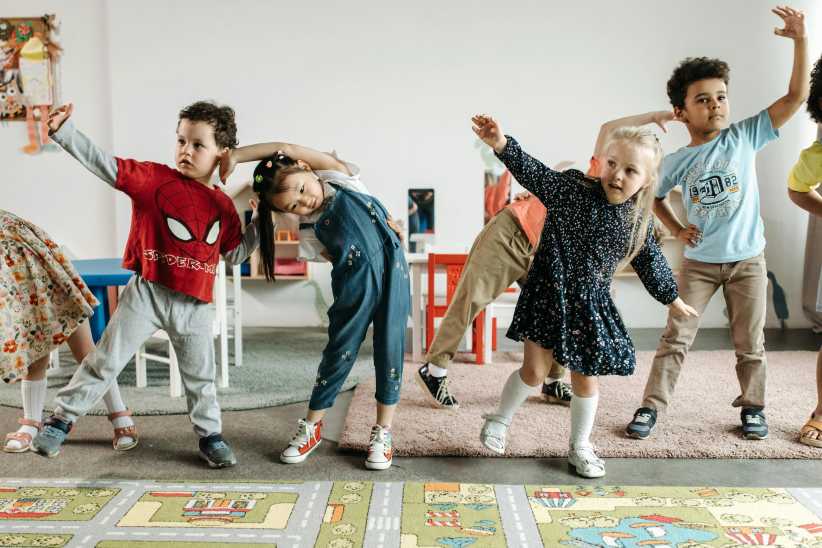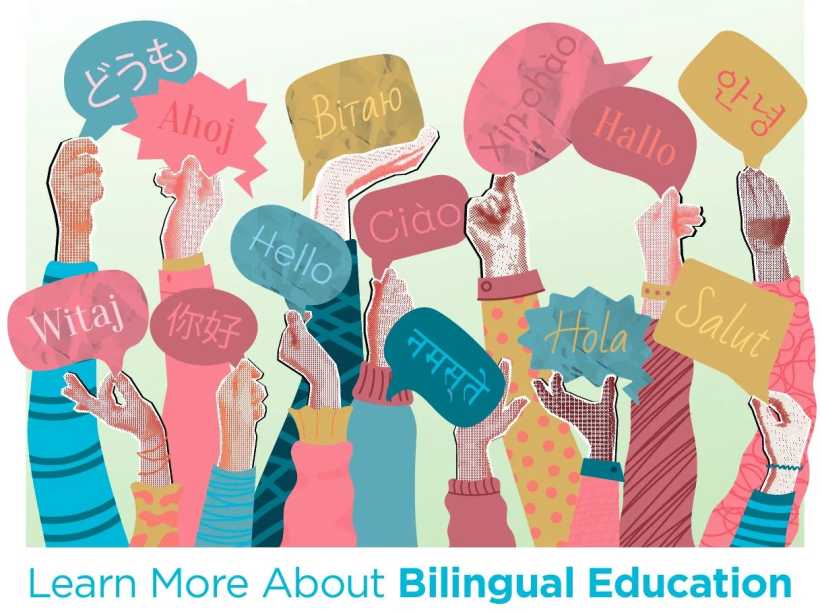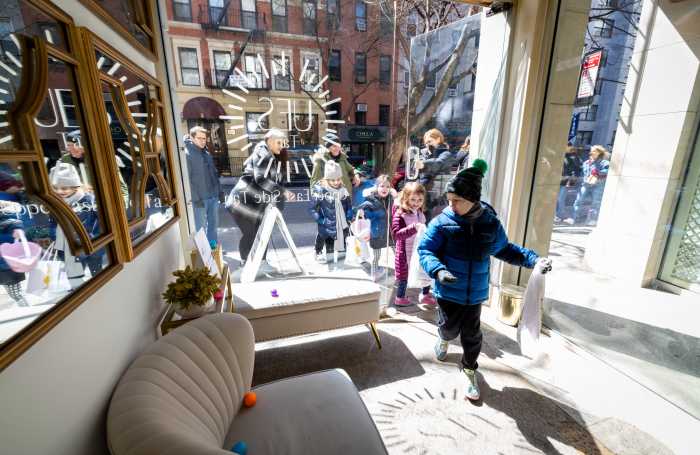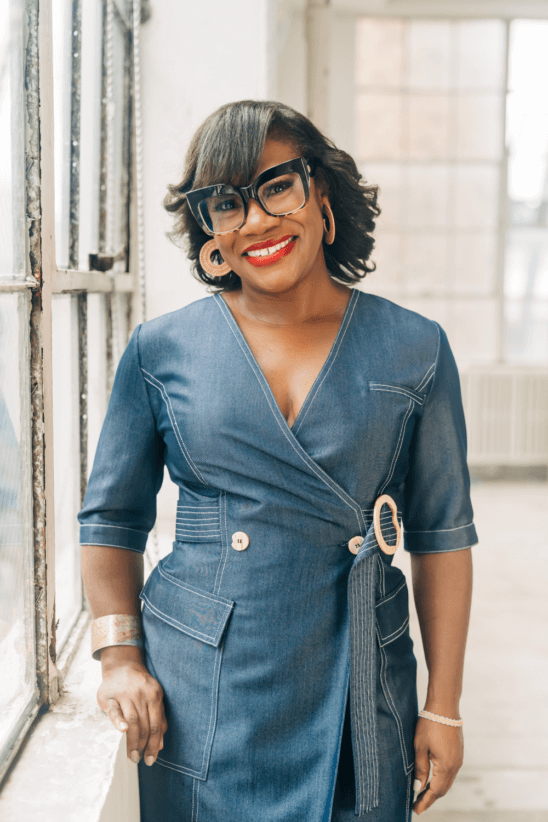 Photo by Yumi Matsuo
Photo by Yumi Matsuo
Kimberly Seals Allers: Power Mom
Kimberly Seals Allers is that human. She speaks truth to power and is the mother that women and, more importantly, Black and Latina mothers have in their corner.
A former editor of Essence and writer at Fortune, she is also an award-winning journalist, author, international speaker, strategist, and, most importantly, an advocate for maternal and infant health. Kimberly is fighting for racial equity in birth and breastfeeding and to end the unconscionably high Black maternal mortality rates.
Something that is much needed in New York. Senator Kirsten Gillibrand stated last year, “Over the past decade, New York State has experienced a 60 percent increase in maternal mortality. According to the NYS Department of Health, the rate of maternal deaths in New York City has risen from 18.7 per 100,000 live births in 2007 to 31 per 100,000 live births in 2015. Racial disparities are also very evident, particularly in New York City, where more than half of all births in the state take place. In New York City, Black women are estimated to be up to 12 times more likely to die during pregnancy and childbirth than white women and are three times more likely to suffer from life-threatening complications according to a 2018 study.”
As we have seen with the recent deaths of Bronx mother Amber Rose Issac and new mother Sha-Asia Washington from Brooklyn, this is startlingly true and downright frightening. Kimberly Seals Allers knows this needs to change. To empower Black and brown mothers before they go to a hospital, she developed an app called Irth — as in Birth but without the B for bias — where mothers of color can share their experiences of care, and pregnant women and new moms can find a hospital or doctor review from a fellow mother who is like them.
We chatted with this born and raised in St.Albans, Queens mom on the state of Black and brown mothers and why the Irth app matters.
When I heard you speak at a past mom summit you shared that your own personal birth experience led you to create the concept for the Irth app, can you share how this experience changed your life?
When I gave birth to my first child, just as I was completing my Masters degree at Columbia University and, I was anxious and elated. During my pregnancy, I asked many colleagues and girlfriends with children, most of whom were white, where to give birth. I read all the rankings list and listened to their glowing experiences and I went exactly where they recommended. While they walked out of the same hospital raving about their care, I left feeling traumatized. I had a C-section I still can’t fully explain, my baby was given infant formula despite my explicit direction that I was breastfeeding, I had to fight and cry to have my baby with me in my room. They could not believe the things that I experienced. It was as if I was at a completely different place. However, the truth was that at that time of my life, I was not yet married and I was still on student health insurance. And I was treated like an unwed Black woman with basic coverage. I felt that, I lived that. Imagine having such high expectations for your childbirth experience and then having a starkly different experience. Imagine knowing that other people who didn’t look like you were raving about a place that treated you so disrespectfully. That experience always stayed with me — because it was clear that people are not being treated the same way even at the same place. Although these women were my “peers” in many ways — we attended the same college or worked at the same companies — based on my life circumstances at that time — they were not the best sources for referrals or reviews. I wish I could have found a review from someone actually like me — race, socio-economics, relationship status — all of it. That’s the key problem Irth seeks to solve — giving you reviews from someone like you.
Amber Rose Issac and Sha-Asia Washington’s deaths from complications of childbirth has brought to light the crisis that Black and Latina women face in childbirth in New York City. Why are Black and Latina mothers more likely to have complications in childbirth than white women?
All women can face complications after childbirth — but Black and Latina women disproportionately die from those complications — this is the problem. Often and especially in the case of Amber Rose and Sha-Asia — both had expressed that their concerns were being ignored. Complaints about their health were ignored, concern about pain was ignored — these are common threads in many experiences of Black and Latina women and sadly they too often lead to a preventable death. The New York State Task Force on Maternal Mortality and Disparate Racial Outcomes has directly linked racism and implicit and explicit bias to New York’s rising maternal mortality and morbidity rates. The fact is that despite socio-economic status and access to prenatal care, these disparities still exist. We can look at the harrowing story of Serena Williams’ near-death experience during childbirth to know that income and celebrity status do not prevent disrespectful, dismissive or poor care.
Secondly, many of the complications are due to how we birth. Black women have some of the highest rates of C-sections. According to studies, Black women are more likely to be given cesarean sections than other races, even in low-risk pregnancies. (In 2018, over 30% of Black women with low-risk pregnancies delivered via C-section, compared to under 25% of white women.) And a 2008 review found a race-based discrepancy in C-section rates that persisted even after adjusting for the fact that Black people are more likely to have preexisting conditions that might necessitate the procedure. C-sections are indeed at times necessary, but they are risky and increase the chance of hemorrhage, surgical errors and other post-operative complications — this is often what kills Black and Latina women.
Also we can’t ignore the fact that the medical system is actually rooted in racism.
In my first book, The Mocha Manual to Fabulous Pregnancy, a guidebook for Black women, I wrote: “Just being a Black woman places you at a higher risk of poor birth outcomes…and at the root of it are the stresses of racism and the biased treatment you may receive.” That was in 2006 — and sadly, not much has changed. According to the CDC and many other agencies, 60% or more of childbirth-related deaths are preventable.
Recently in NYC, a statue of Dr. Marion Sims was taken down in Central Park. Dr. Sims was known as the “Father of Gynecology” but most of his studies were performed on enslaved Black women — without their permission and often without anesthesia. Then there’s Henrietta Lacks and her cells and the history of eugenics — throughout history Black women’s bodies have been disrespected and mistreated by the medical establishment and sadly there is more work to be done.
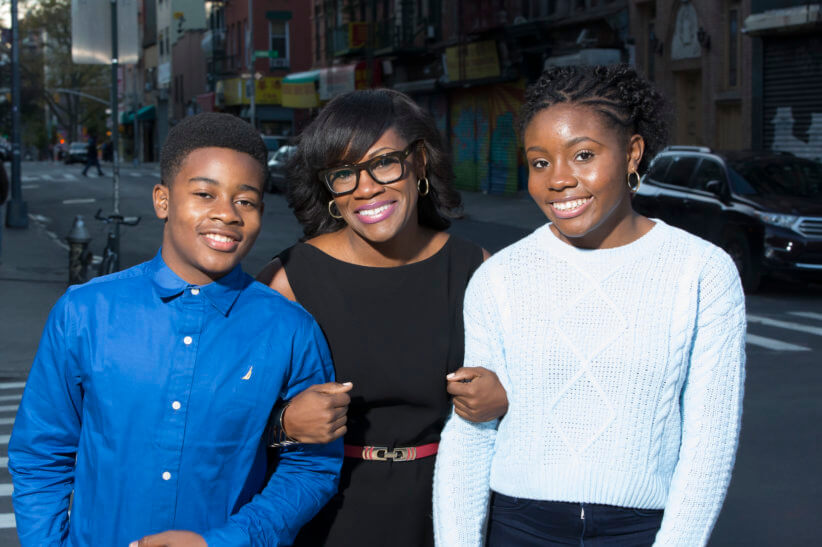
Kimberly Seals Allers and Kids
How and why did you develop the Irth app?
In my past eight years of experience working on the ground developing community engagement strategies and community-led interventions to improve birth and breastfeeding outcomes across the U.S. — one thing was clear: far too many Black and brown women had a story. Of mistreatment, or neglect or dismissiveness — those were the ones that lived to share their story. Or they knew a friend or family member who died in childbirth.
Countless scientific studies have also documented the problem of provider bias with one landmark study showing doctors giving different treatment options for hypothetical Black patients than for hypothetical white patients presenting the same symptoms.
Right now, hospitals are primarily addressing this problem with an anti-bias or cultural competency training. This is an important start. However, these trainings lack public accountability. Nobody is checking or publicly tracking these hospitals to see if the patient experience of care is actually being impacted positively, negatively or not at all.
Meanwhile, these one-size-fits-all-providers trainings that focus on the individual, don’t have the granular details of what exactly are the spectrum of experiences that leave Black and brown birthing people feeling traumatized. Plus, they call it unconscious bias for a reason. It often occurs unconsciously, so we must detail what is perceived as an experience of bias to better inform these efforts. We can’t change what we don’t see or know about.
When I created the concept for Irth — I knew that it needed to do two things to be a meaningful disruptor. It needed to create public accountability for hospitals and providers — who often survey patients privately but never share that information publicly. And, it needed to empower Black & brown birthing folks with a new decision-making tool that leverages the collective consumer power of women of color as a lever for change. Additionally, Irth plays a critical role in shifting the narrative of Black maternal health which is often one of doom and gloom, with headline after headline of deaths but little coverage of solutions. At Irth, we say two things: one, “I am my sister’s keeper” and, two, your story has the power for change, when put together with others just like you and turned into data.
I started the process of building Irth by attending app development classes at NYU (the classes were free to alumni) with my then 13-year-old son, Michael-Jaden, who is a math and science kid/coding fanatic. This became a way for us to bridge our worlds and he began creating the very first wireframes for making Irth a reality. Knowing my first childbirth experience inspired the concept and my second child has worked with me on creating a solution, brings me immense joy.
Since then, I’ve raised over $600,000 in grants so we can build Irth with undiluted capital and without the constraints of investors so we can make sure it is safe, accessible and truly community-centered. I am also proud that Irth is being built by a team of femmes of color — literally built by women of color for women of color. Motherhood is my passion and working to make the motherhood experience better for all mothers is my life mission.
How does the Irth app work and what has been its impact?
As a consumer tool, when Irth launches nationwide in early November, it will be a Yelp-like review and rating platform for physicians and hospitals that helps Black women and birthing people of color find providers with good reviews from people just like them. Irth captures prenatal, birthing, post-partum and pediatric visits for up to one year to offer a new lens for looking at experiences of bias across the maternity and infant care continuum. You can leave a review to inform others or you can search for reviews and filter it by race, ethnicity, sexual orientation, gender identification, income and etc. — to find reviews from people just like you. Irth empowers a low income Black woman or a Latina same sex couple with information they’ve never had before to find a real-time, peer-reviewed and trusted provider—a known factor in improving patient compliance & behavior change.
For the past year, we have been working on the ground pre-Covid and virtually at BirthWithoutBias.com during the pandemic, to capture the reviews of Black and brown birthing people in five cities — NYC, New Orleans, Sacramento, Detroit, and the metro Washington D.C./DMV area. These reviews are being used to seed the app so when it launches nationwide it will already be useful and informative.
On the back end, Irth creates the first ever national repository of experiences of care among marginalized groups. We know these experiences are everywhere — from New York City to Detroit to California. This new data set will be used to provide critical patient reported insights to hospitals, that can reveal and detect blind spots, specific behaviors in care & identify specific trends in experiences of bias. We can then work directly with hospitals to create more respectful, culturally responsive care. Thus, Irth becomes an innovative tool to advance equity in quality improvement measures.
Through our preliminary data we have already been able to identify trends in hospital care and we are starting to share that information with hospitals and providers. This is critical!
Hospitals can’t change what they can’t see — and having an intellectual, 90-minute training about bias for healthcare professionals versus literally seeing actual experiences of patients and what was perceived as disrespectful, uncomfortable or traumatizing is an important piece in addressing the Black maternal mortality and morbidity crisis. There is also great momentum with Maternal Mortality Review Committees (MMRCs), but these efforts look to address the problem “from the grave” — Irth gives front end insights so we can prevent death by identifying the behaviors that lead to neglect.
Also, although the app is “Yelp-like” — Irth is not a free form commenting space. You have to literally identify what happened that you perceived as bias — was it lack of eye contact? Dismissiveness about pain levels? A rude comment? Lack of receiving a diagnostic test in a timely fashion? We already have about 20 frequently reported experiences that we keep adding to as women share reviews–so we are literally decoding bias to provide specific information to providers and institutions. You can’t change what you can’t see! This is the most important part of how Irth will be a game changer.
On the back end, we will also be able to run reports by hospital or zip code, for example, to identify patterns on both sides. When we find hospitals with patterns of good reviews — what is going on there? And how can this be examined and potentially replicated as a best practice for others in the field? And for those with patterns of poor reviews — what are the exact experiences and what is the training or other solution that can address it? Are there bad actors who need to be revealed and addressed? Irth can help reveal those blind spots, create more transparency and public accountability and ultimately help devise solutions informed by our data.
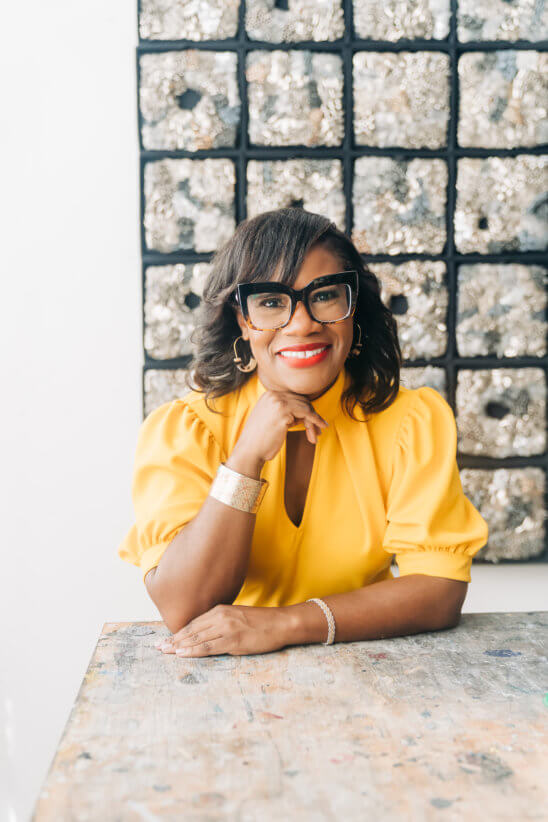 Photo by Yumi Matsuo
Photo by Yumi Matsuo
How can a woman of color WOC best advocate for herself at a hospital?
Women of color should not have to save themselves. I often push back on questions of what can women do — because we should be asking more of what hospitals and providers have to do. We are paying for a service and they are failing us miserably. So the first thing will be — check the Irth reviews before you choose a hospital or provider.
Next, we certainly know the value of doulas — not just in being an advocate at the hospital but also their ability to educate women prenatally about their bodies, what actually is happening during childbirth and what are the questions to ask. Some of those basics include: what are my options? May I have some time to think about this? What happens if we do nothing? But much of what happens is due to ignorance and power — women being stripped of their bodily knowledge about birth and what is “normal” or “necessary” and physicians exercising their perceived power and control over the birth process.
What resources if any can a Black and brown mother with limited financial resources find available to support her post birth?
In NYC, the Health Department has a number of prenatal and postpartum resources including low or no-cost community doulas, who also support families postpartum. For example, Healthy Start Brooklyn offers the By My Side Doula program, the Healthy Women, Healthy Futures program and other city-wide resources include Ancient Song Doula services in Brooklyn.
There are also a number of amazing online resources such as The Black Mamas Guide by Mamatoto Village and of course, my Mini Mocha Manual to Pregnancy and Childbirth ebook on Amazon and don’t underestimate the power of social media to find support. However, we must make sure doulas are paid a living wage and out of hospital births at childbirth centers become more of a standard option for New York birthing people. The SaveARose Foundation, started by Amber Isaac’s partner, is currently raising funds to bring a childbirth center to the Bronx.
 Logo of Irth app
Logo of Irth app
What does the future hold for you and the Irth app?
My vision for Irth is that it becomes the go-to brand for bias-free care for all mamas and birthing people — that all women will “Birth with Irth.” I want everyone to seek out a physician who is Irth-approved — and that sign will be proudly displayed in a physician office or hospital lobby. I’m on a mission to make Irth the “Good Housekeeping Seal of Approval” for Black women and birthing people of color in maternity and infant care and that our company will create and provide a new set of trainings, education and certifications to and for providers that are literally rooted in the lived experience of care not just medical science.
Along the way, we also want to decolonize “data” and uplift the lived experience of care. Data should not just be quantitative — the qualitative aspects of care must be prioritized too. We expect hospitals to value this information and care about Irth’s consumer reports and rankings as we develop these products for the field.
And while Irth is squarely focused on the maternal and infant health space now, we know that a crowd-sourced, peer reviewed model would be helpful for other areas of women’s health whether you are looking for a fertility specialist or a breast cancer doctor, so I see Irth scaling to other areas of women’s health, as we build out the brand.
Ultimately, Irth is also a vehicle for allyship. White women say to me all the time, if a provider is not treating Black and brown women well then I don’t want to go there either. That’s important! We need white women to also use Irth in their own decision-making and to let that be known, so Irth becomes a tool for all women to leverage our collective consumer power in service of the Black and brown women who are being disproportionately harmed by the system. That will be a beautiful moment. When we say, Irth is birth, but we dropped the B for bias — we are fighting to remove the bias for good, and for all













